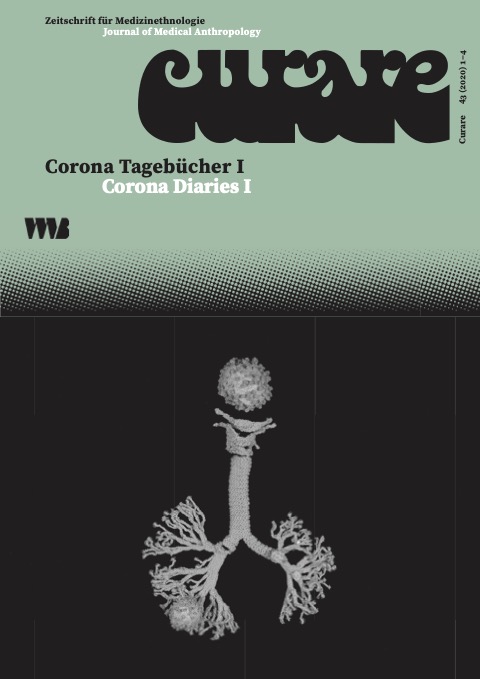Capitalism is the Virus
Witnessing Voices from Leipzig Opposing the German Corona Policy
DOI:
https://doi.org/10.60837/curare.v43i1-4.1536Schlagworte:
social movement, conspiracy culture , stigmatization, German reunificationAbstract
The proclamation of the SARS-CoV-2 pandemic has created a kind of asymmetrical duel situation internationally between supporters and critics of the various state-imposed measures. It has become a dramatic situation, a matter of life and physical as well as social death that puts work and family relationships as well as friendships to the test and sometimes even causes them to break. Many even see it as a threat to social cohesion, because behind the heated controversy over the question of how dangerous the virus is and what the best and most socially balanced way of reacting to it is, fundamental issues are quickly at stake: attitudes toward life and community, toward the state, science, disease, healing, and death. In Germany, too, a vivid and continually changing protest movement has emerged that the public mainly perceives as a diffuse mixture of right-wing and esoteric groups, but is actually much more heterogeneous. What is striking is the collage of left-wing and right-wing attitudes, actors, and goals, which is also confusing formany protesters themselves. Based on ethnographic fieldwork among members of this movement, this text presents the “natives’ points of view” in regard to their oscillation between different utopias and dystopias and analyzes this movement as part of a preexisting “conspiracy culture” with a specific combination of discourses and a specific history of stigmatization and counter-stigmatization. The descriptions focus mainly on examples from my city of residence, Leipzig. Since there are a lot of people in this region who explore the current situation against the background of their socialization in the German Democratic Republic, this text becomes not only a commentary on the pandemic year 2020, but at the same time one on the 30th anniversary of German reunification.
Downloads
Veröffentlicht
Ausgabe
Rubrik
Lizenz
Copyright (c) 2020 Curare. Zeitschrift für Medizinethnologie

Dieses Werk steht unter der Lizenz Creative Commons Namensnennung - Weitergabe unter gleichen Bedingungen 4.0 International.

